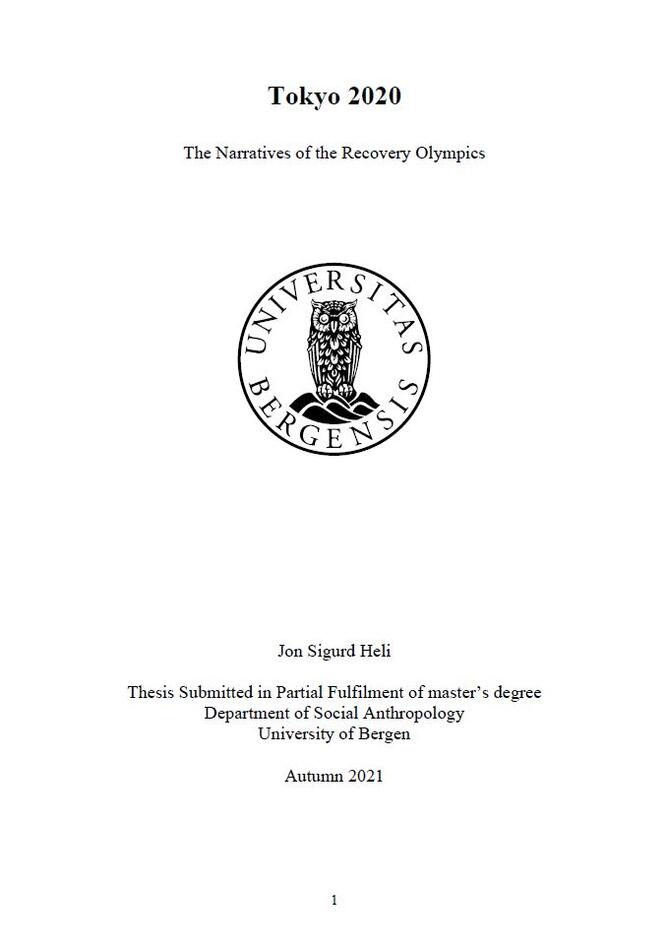Tokyo 2020: The Narratives of the Recovery Olympics
Main content
Master's thesis submitted at Department of Social Anthropology, autumn 2021.
By: Jon S. Heli
Supervisor: Professor Knut M. Rio
This thesis explores the narratives and discourses related to the Olympic Games in Tokyo. A common theme for the organizers in the 1964 and the 2020 Games is the desire to express a national recovery. As the word recovery reffers to the prcess of improving or healing, the recovery Olympics entails the triumph of large-scale national tradegies. In the 1964 Games, the organizers wanted to demonstrate a recovery of the Tokyo Olympics after the defeat of World War II. The 2020 Games wanted to demonstrate a recovery after the "The Great East Japan Earthquake."
To present the Olympic games as the soloution to these complex issues, is problematic. It overlooks the ongoing suffering many expereince.These "recovery" events wanted to demonstrate one-sided solutions to complex, large-scale crises. for example, in the
preperations for the 1964 Olympics the Organizers tried to solve Japan's post-war condition through intense urban redevelopment, the government desperately tried to expurgate their pre-war and wartime associations by creating new spatial formations. Ironically, this made people like Eto Jun and Hashimoto Osamu feel like they were living in the war again. Their complex feelings, perceptions, thoughts, affect, and fears dragged them back to these difficult life experiences. The 2020 Games' ultimate paradox (before the pandemic) was pointed out by the anti-Olympic activists how billions of dollars are spent on building sporting venues and hotels in Tokyo, while tens of thousands of people have remained living in temporary housing for the past decade. From this point of view, the Olympics was the opposite of the Fukushima recovery, and it was hindering it.
Another layer of complexity appeared in 2020 Olympic. The coronavirus forced the Olympics to be postponed by a year. Japan experienced rapid increases in infection rates from 2020 to 2021. Despite the public was against hosting it, the government hosted the Summer Olympics in 2021. Initially, Prime minister Suga wanted the world to come together to celebrate the triumph over the virus. Instead, however, the virus forced Olympic Organizers to implement severe logistical changes. The logistical changes lead to a shift in the 2020 recovery which honored the the atheltes dedication instead in uncertainty. The issues of 3/11 were forgotten about.
